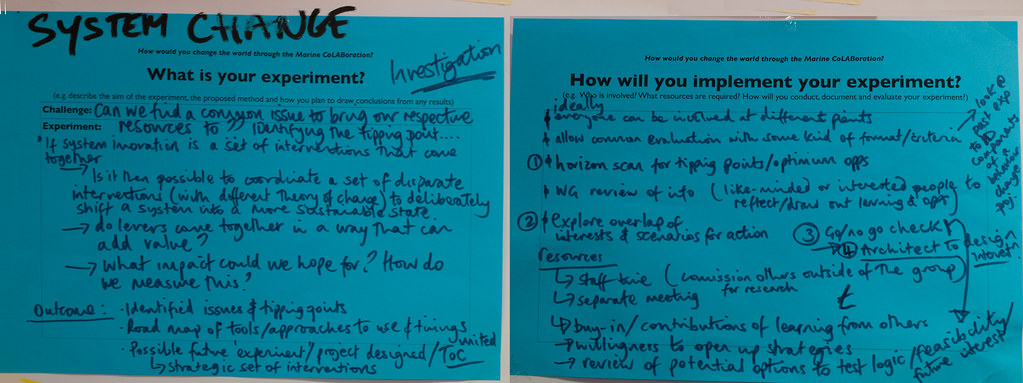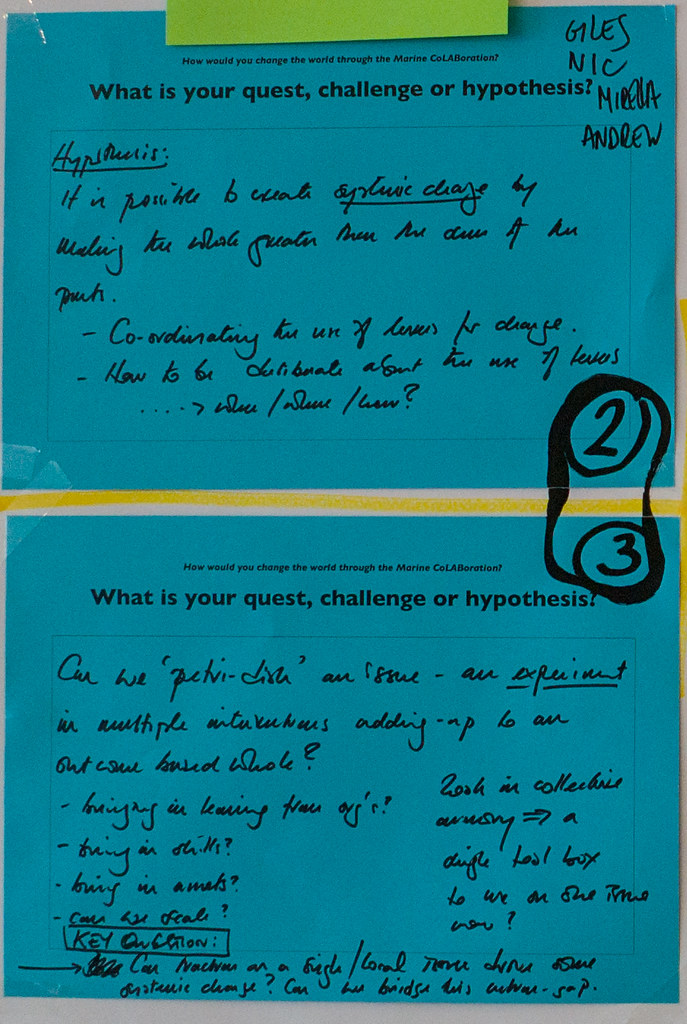This is an old revision of the document!
Table of Contents
System Change Experiment
(an experiment from the March workshop)
Challenge
What traction could we gain as a group if we focus on a single problem? Can we find a common issue to bring our respective resources to? How do we identify a tipping point?
Experiment design
An investigation
It’s important to understand what existing approaches have worked, what success factors, tools and motivations are around to create system change.
If system innovation is a set of interventions that come together:
- is it then possible to co-ordinate a set of disparate interventions (with different theories of change) to deliberately shift a system into a more sustainable state? when are these co-ordinated actions an improvement over individual uncoordinated activities?
- do levers come together in a way that can add value?
- what impact could we hope for? How do we measure this?

(Expected) Outcome:
- identified issues and tipping points
- road map of tools, effects and approaches to use and [timings?] united (reflection on what has/hasn’t worked); mapping of the existing system as it is currently understood; uncovering existing alignments and interpreting the findings
- possible future experiment for a strategic set of interventions or projects designed/TOC
- framework/survey for structured reflection
- visual theory of change
- low tech and low cost documentation
Implementation
- Ideally everyone can be included at different points
- Allow common evaluation with some kind of format/criteria (look at past experiences to identify components of a behaviour change [poj.?]
1. Horizon scan for tipping points, future opportunities,
- WG review of information (like-minded or interested people to reflect/draw out [levering?] and opps
- help uncovering emerging issues
2. Explore overlap of interests and scenarios for action (Venn diagrams of interests)
3. Go/no go check (feasibility)
4. Architect to design and [innovate?]
Resources:
- staff time (commission others outside of the group for research)
- separate meeting
- buy-in/contributions of learning from others
- willingness to open up strategies
- review of potential options to test logic, feasibility, common tipping points and future interest
Needs
- Contributions of knowledge and learning to identify components of behaviour change; case studies, reflection, stories, suggestions, interpretation/analysis
- Come to group discussion
- Buy-in to horizon scanning and where [xxx] to intervene
- Suggestion of others outside of the group
- Testing the logic
Offers
- MVL: Time, examples, analysis, [Lessons learned?], horizon scanning
- Nic: My time, reflection on past experiences, horizon scanning, interpretation, experimental project design
- Andrew Farmer: Horizon scanning, meetings
- Amy: Time, ideas, experiences, horizon scanning, meeting venue, cake
- Sue: review of success and what has worked
- NEF: share our experience, lessons in campaigning, training and movement building
- SL: Review of lessons learned, horizon scanning [+planning?]
- Louisa [intelligence?] from outside [around context?]
- Giles: System [xxx] architecture, [getting up?] hypothesis of what needs to happen when; [Horizon Scanning xxxxxxx → can’t read that whole post-it]; Look at [xxx] [“xxx”] elements from each [initiative?]

